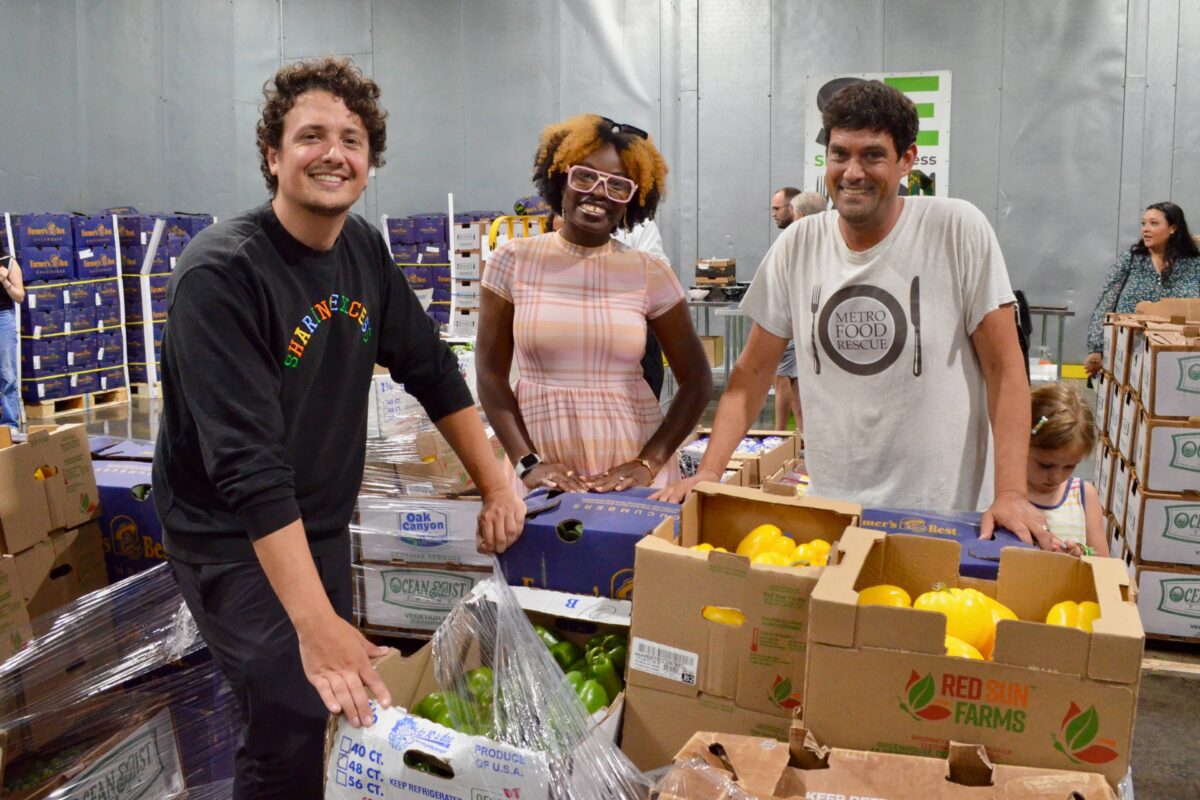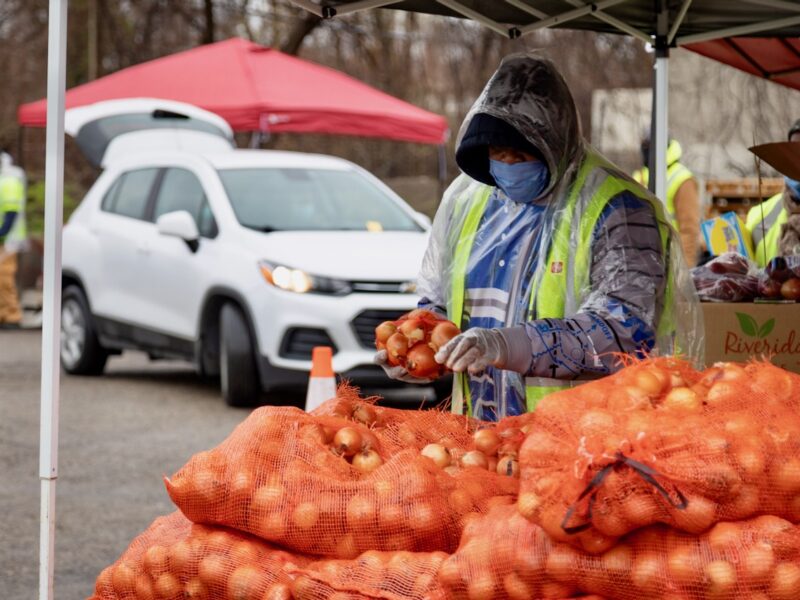Overview:
-Metro Food Rescue distributed to 88 food pantries last year in Oakland, Wayne, and Macomb counties, says CEO Chad Techner.
-Sharing Excess CEO Evan Ehlers says U.S. throws away 40% of its food supply.
-The organizations are partnering to rescue food from the Detroit Produce Terminal and redistribute it to people in need.
Sharing Excess, a Philadelphia-based organization that redistributes surplus food, and West Bloomfield Township-based Metro Food Rescue are collaborating to rescue up to an estimated 5 million pounds of fruits and vegetables annually for people in need.
The two nonprofits headquartered in a Delray warehouse where they will sort and repack surplus produce rescued from vendors at the Detroit Produce Terminal, located just around the corner.
Federal funding cuts mean that “it’s more important than ever to take the opportunities we have and get food to people who need it,” Chad Techner, founder and CEO of Metro Food Rescue, said at a Wednesday ribbon-cutting at the Green Street warehouse.
Sharing Excess leads sorting and repackaging efforts, and Metro Food Rescue distributes the produce to food banks, pantries and other agencies in the Detroit region.
The groups have rescued 617,000 pounds of produce in a pilot operation over the last two months, said Evan Ehlers, founder and CEO of Sharing Excess.
“In the U.S. we throw away 40% of our food supply,” Ehlers said, adding that if the country could save 10% of its discarded food, everyone who is hungry could be fed.
Ehlers founded Sharing Excess while a student at Philadelphia’s Drexel University, where he used leftover meal swipes to feed hungry residents. The nonprofit says it now rescues more than 2 million pounds of food each week and expanded its redistribution model nationally to locations such as Hunts Point Produce Terminal in New York City, the nation’s largest such facility.
Produce rescued from the Detroit Produce Terminal ranges from simple excess product that vendors can’t sell; to produce that lacks enough shelf life for a grocery store; and imperfect produce, said Sarah DiPasquale, head of food rescue operations at Sharing Excess.
MORE REPORTING FROM PLANET DETROIT
Jason Ford’s next chapter begins at Detroit People’s Food Co-op: ‘We gotta build the systems’
In Detroit’s North End, Jason Ford and the Detroit Black Community Food Sovereignty Network are empowering residents with the Detroit People’s Food Co-op, providing fresh, locally sourced foods to foster generational health and food autonomy.
Guide: 6 ways to fight food waste in Michigan
Michigan residents are taking action against food waste, leveraging tech tools like Flashfood and Too Good To Go to save surplus food from landfills. Composting initiatives, both at home and through local services, are gaining traction. Community efforts to donate excess food to nonprofits are empowering neighbors, while smart shopping and meal planning are reducing…
USDA cuts rattle Detroit’s ‘resilient’ food pantries
In Detroit, a food distribution event at Pilgrim Baptist Church has been a lifeline for hundreds of families for over a decade. Recent cancellations of $4.3 million in state food bank orders due to USDA spending reshuffles have cast uncertainty over its future.
Fresh produce ‘always a special treat’ at Detroit nonprofit
On Detroit’s east side, funding cuts brought a food distribution by the nonprofit GenesisHOPE to a halt in mid-May.
The health equity-focused organization’s food partner paused its distribution, Selena Asberry-Goss, GenesisHOPE’s director of community health and wellness, told Planet Detroit. Since then, the nonprofit connected with Metro Food Rescue, and its food distribution continued uninterrupted.
“It definitely filled a gap,” she said.
GenesisHOPE typically feeds between 400 and 600 people per month, Asberry-Goss said, and produce is “always a special treat” for guests, she said.
“People come out for that produce.”
Metro Food Rescue distributed to 88 food pantries last year in Oakland, Wayne, and Macomb counties, said CEO Techner. About half of those partners are located within Detroit proper, he said.
The No. 1 request from food pantries is more high-quality produce, Techner told Planet Detroit, citing a University of Michigan study. Many grocers that serve Detroiters lack high-quality produce, he said.
“A lot of the people who are getting this food wouldn’t have access to it otherwise.”
The partnership between Metro Food Rescue and Sharing Excess is funded in part by grants from the Michigan Department of Environment, Great Lakes and Energy, the Michigan Department of Health and Human Services, the Berman Foundation, the Delta Dental Foundation, the DTE Foundation, the MacGregor Fund and City of Detroit American Rescue Plan Act funds.





